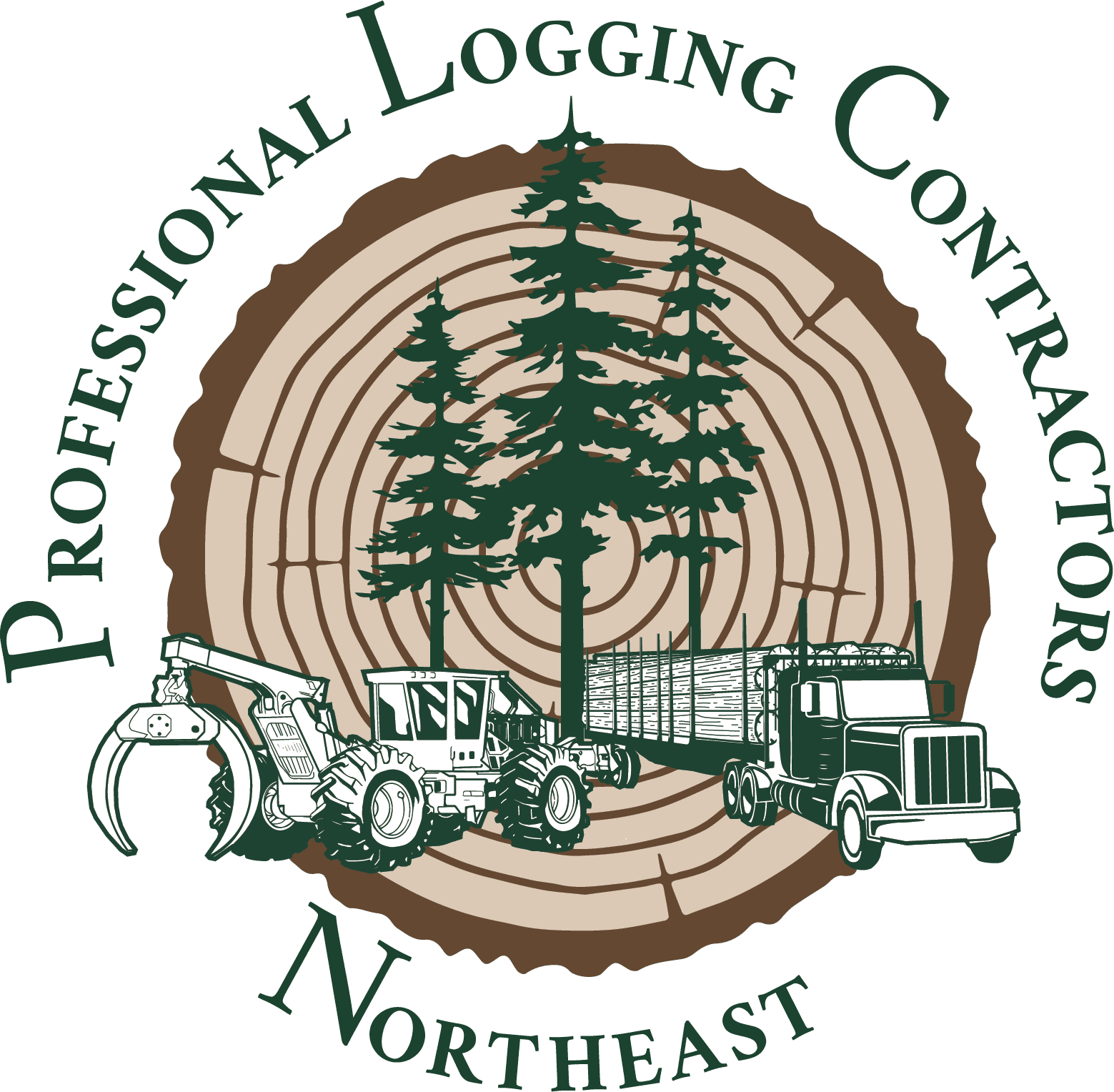SCOPAN LAKE – Graduates of Maine’s only post-secondary training program for operators of mechanized logging equipment were recognized Friday, Sept. 14 at a ceremony held in the woods southeast of Ashland where they have spent weeks harvesting timber using sophisticated state-of-the-art machines like those they will encounter in the logging industry.
The Mechanized Logging Operations Program (MLOP) was launched last summer thanks to a partnership between three Maine community colleges, the Professional Logging Contractors (PLC) of Maine, and industry partners including Milton CAT and Nortrax/John Deere. This is the second class to complete the program.
Friends and family members of the students joined logging contractors, representatives of the community colleges, state lawmakers, and industry sponsors to share a proud day with the students who completed its rigorous requirements.
“We could not be prouder today to see these newly trained forest technicians enter our industry,” Jim Nicols, President of the PLC said in his remarks. “Each one of you has a great opportunity to enter this industry at just the right time. There are great things on the horizon for this industry and with the training you have received here, you will always have a job.”
Students completing the program included: Evan Burgay of Caribou, Deric Buswell of Rumford, Jack Houtz of Stillwater, Logan Johnson of Presque Isle, Parrish Lovely of Westfield, Ralph Nichols of Wallagrass, Ben Shaw of Pittston and William Shufelt of Gray.
Houtz, who addressed the crowd on behalf of the students, said the opportunities and experiences they had to operate multimillion dollar machines in the woods for weeks were unprecedented, and credited Milton CAT and Nortrax/John Deere for stepping up to give them access to the equipment that made the hands-on learning possible.
 He also thanked the instructors, organizations and individuals who contributed so much time and effort to the success of the program.
He also thanked the instructors, organizations and individuals who contributed so much time and effort to the success of the program.
“This was a wonderful opportunity that would not have occurred without a lot of people,”
Houtz said, adding to his fellow graduates, “I hope you guys are as excited as I am. Stay safe, I hope to see you in the woods.”
While the logging industry has seen some contraction in recent years due to the loss of pulp and paper mills, the demand for skilled operators of the feller bunchers, harvesters, grapple skidders, forwarders, delimbers, and other mechanized logging equipment that now harvests more than 90 percent of all timber in Maine is strong. Many current operators are reaching retirement age and the steep costs of training new operators is driving up demand and wages.
The hands-on experience students gained operating equipment for weeks in the woods is something unavailable anywhere else in Maine and neighboring states.
The new program is working in tandem with the state’s current vocational training system and is expected to draw many of its students from within the logging industry itself as well as from Maine’s four high school vocational logging programs. For the first time, logging operators are being trained similarly to other advanced trade occupations with a high school and postsecondary approach.
Approximately 95 percent of logging in Maine now relies on mechanized equipment including feller bunchers and harvesters, delimbers, grapple skidders, and forwarders. It generally takes at least a year of training and experience before an operator becomes skilled enough to run this equipment safely and efficiently. The cost for companies to train these operators themselves is approximately $100,000 each.
It was for this reason that the PLC partnered with the Maine Community College System and industry to create the program. It was jointly developed by the PLC and Northern Maine Community College (NMCC), Eastern Maine Community College (EMCC), and Washington County Community College (WCCC) with generous support from Milton CAT/CAT Forest Products, Nortrax Inc./John Deere, and other industry partners. The Maine Legislature also provided strong bipartisan support for the program.
Donors recognized also included Prentiss and Carlisle, United Insurance in Fort Kent, Labonville Inc., Katahdin Fire Co. and ProPac.
“Without the donors and their support, there is no way this program could have gotten off the ground,” Nicols said.
More information on the program is available online at http://www.nmcc.edu/industry-customized-training/mechanized-forest-operations/
